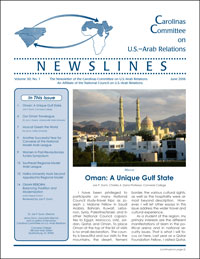and
Invite you to attend a full-day conference:
Libya-U.S. Relations 2017
New Vision, Hope, and Opportunities
Date TBD*
Pavilion Room
Ronald Reagan Building & International Trade Center
Washington, DC
Featured Speakers Include:
| “Oil & Gas in Libya: from Trepidations to Exhilaration?” | “What Went Wrong in Libya: Reflections from the Top” | “What Went Wrong in Libya: Reflections from the Top” |
|
Mr. Mustafa Sanalla Chairman of the National Oil Corporation (Libya) |
H.E. Dr. Mahmoud Jebril Former Prime Minister of Libya |
H.E. Ali Zeidan Former Prime Minister of Libya |
| “Private-Public Joint Enterprises and Investment in Libya” | “Fate of the U.N. Sponsored Agreement in Libya” | “The Humanitarian and Health Crisis in Libya: Magnitude and Needed Measures” |
| Fawzi Farkash Chairman, Libya Investment Authority |
Jonathan Winer Special Envoy for Libya, U.S. Department of State |
Dr. Syed Jaffar Hussain Representative & Head of Mission, World Health Organization for Libya, U.N. Resident & Humanitarian Coordinator in Libya |
| “The Trump Administration Perspective on Libya: Considerations and Expectations” | “Mapping Investments in Libya: Opportunities and Challenges” | “The Central Bank of Libya: Walking a Fine Line” |
| Dr. Walid Phares Foreign Policy Advisor to the Donald J. Trump Presidential Campaign 2016, author, consultant and commentator on Middle Eastern affairs and global terrorism |
Mohamed Mohamed Ben Yousef General Manager, Libyan Foreign Bank |
Ali Hebri Governor, Central Bank of Libya |
| “Economic and Security Implications of Libyan Instability on its Neighbors” | “Social Capital & Nation Building in Libya: A Bottom Up Approach and Role of Women” | “Congress and Libya: How Will Future Policy on Libya be Shaped?” |
| Dr. Gawdat Bahgat Professor of National Security Affairs, Near East South Asia Center for Strategic Studies, National Defense University |
Zahra Langhi Chairperson, Libyan Women’s Platform for Peace |
Mr. Christopher Blanchard Middle East Analyst, Congressional Research Service |
| “Chasing ISIS and its Allies Across Libya: How to Secure the Country” | “Rebuilding the Libyan Economy & Investment Opportunities” (MODERATOR) | “How Significant is Libyan Oil & Gas to Loco-regional and Global Security?” |
| Col. Wolfgang Pusztai Chairman of the Advisory Board, National Council on U.S. Libya Relations, and Former Defense Attaché, Austrian Ministry of Defense |
The Hon. David Mack Former Deputy Assistant Secretary of State for Near East Affairs, U.S. Department of State |
Dr. Paul Sullivan Professor of Economics, National Defense University, and Senior International Affairs Fellow, National Council on U.S.-Arab Relations |
Along with other distinguished specialists. Full agenda announced soon.











You must be logged in to post a comment.